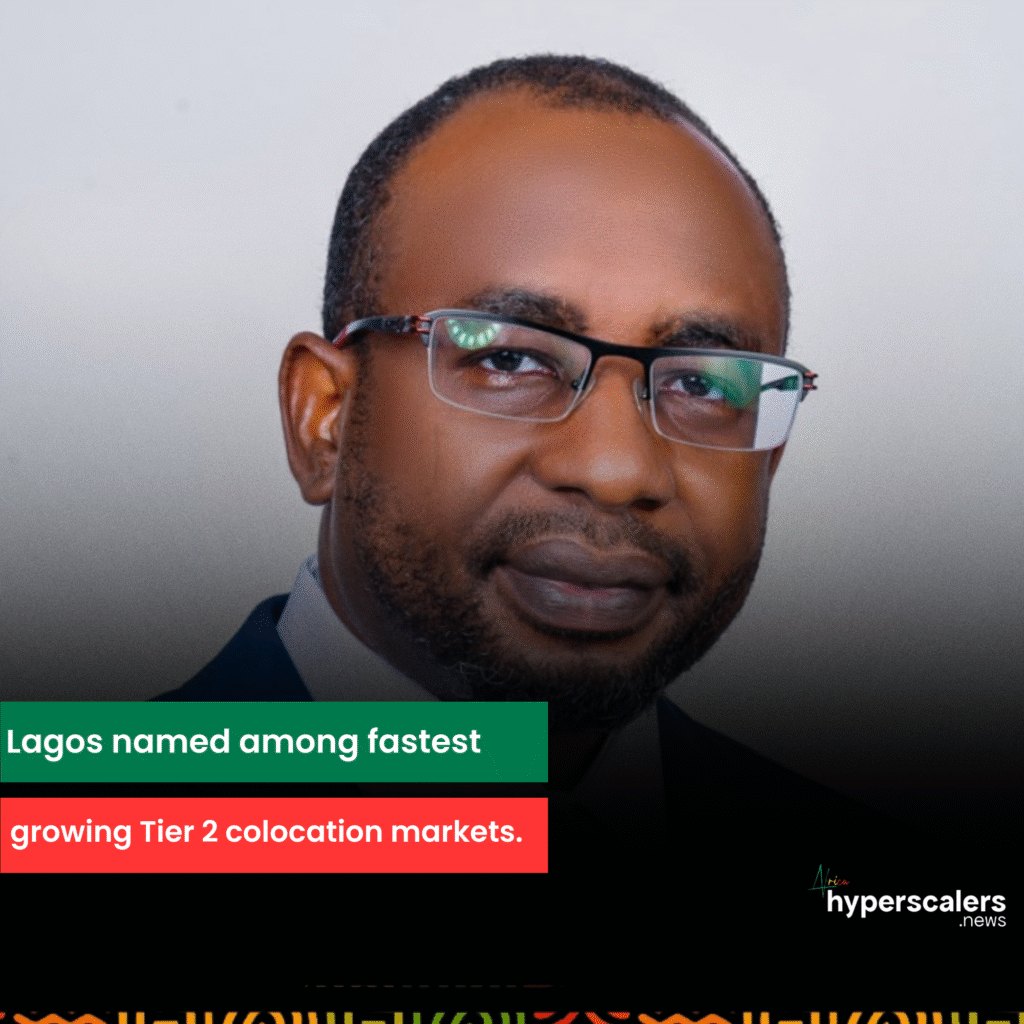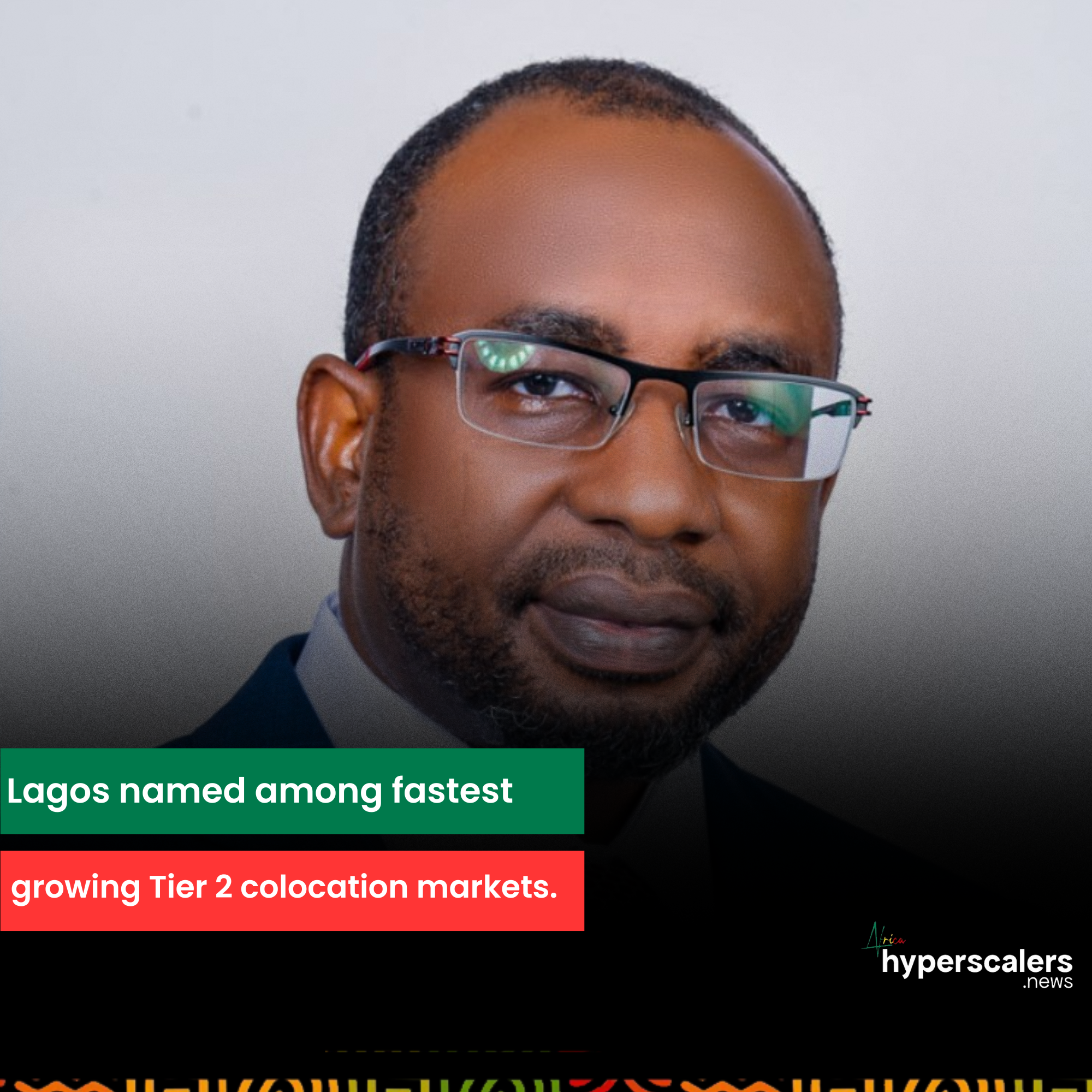Lagos has been named one of the fastest-growing tier-two metro markets reshaping the global colocation landscape, according to new data from Synergy Research Group — a milestone that underscores Nigeria’s ambitions to position itself as a leading African interconnection hub.
Synergy’s latest report, which tracks quarterly revenues for more than 300 colocation companies across 59 countries and 91 metro areas, shows that while the top ten markets remain dominant, much of the fastest growth is happening in the next sixty metros. “While the top ten have grown by an average of eight percent, no less than 17 tier-two metros have grown by 20 percent or more,” said John Dinsdale, Chief Analyst at Synergy Research Group. “This is a clear indication of how the market will evolve over the coming years, with rapidly developing markets becoming ever more important.”
Lagos ranks in the 41–70 metro tier alongside Austin, Quincy, San Antonio, Warsaw, and Dubai, all recording average annual growth rates of 17 percent. This places Nigeria’s commercial capital among emerging hubs in the EMEA and APAC regions that are steadily catching up with established colocation strongholds like London, Frankfurt, Singapore, and Silicon Valley.
For Nigeria, the recognition is more than a data point. It reflects a convergence of infrastructure developments — from the Internet Exchange Point of Nigeria (IXPN) surpassing 1 terabit per second of peak traffic, to multiple new subsea cable landings and growing interest from global cloud platforms. Together, these trends are pushing more African internet traffic to stay within the continent, lowering latency and improving resilience. “Our goal is to build an ecosystem where both local data center providers can scale, and global hyperscalers see Nigeria as a viable investment destination,” said Malam Kashifu Inuwa, Director-General of the National Information Technology Development Agency (NITDA). “This is about both sovereignty and investment — keeping our data here, reducing latency, and unlocking the potential of Africa’s digital economy.”

Global colocation leaders such as Equinix, Digital Realty, NTT, China Telecom, CyrusOne, GDS, KDDI, and Chindata continue to dominate the largest metros, but are increasingly turning to fast-growing second-tier markets like Lagos to capture new demand. Industry analysts note that constraints in some mature hubs — from power availability to land costs — are accelerating investment in emerging locations. In Southeast Asia, for example, Singapore’s moratorium on new data center developments has fueled spillover into neighboring Johor and Kuala Lumpur. Similar dynamics could benefit Lagos as West Africa’s primary gateway city.
With Nigeria set to host the African Peering and Interconnection Forum (AfPIF) for the first time in August 2025, the timing is significant. The event will bring together network operators, data center executives, subsea cable consortia, cloud platforms, and content delivery networks to explore ways of keeping African traffic in Africa. IXPN’s recent milestone and Lagos’s colocation growth put the city on a trajectory to become not just West Africa’s digital hub, but one of the continent’s main interconnection capitals — a place where infrastructure, policy, and market demand converge to shape the future of Africa’s internet.
Ready to dive deeper into the hyperscale revolution impacting Africa?
READ MORE HERE: www.africa.hyperscalers.newsContact Us:
Email: projects@hyperscalers.news
Phone: +2348109003350
Follow us on Social Media: Instagram, Facebook, LinkedIn, x





